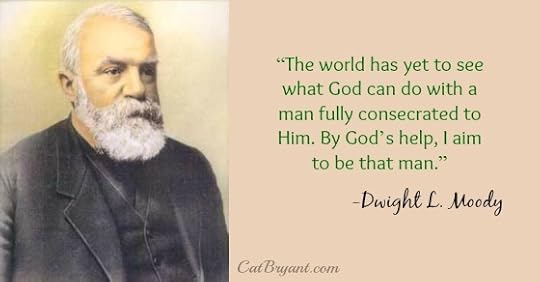Walk Through the WORD Acts 11-12

Walk Through the WORD – Previous Posts
Acts 1-3
Acts 4-6
Acts 7-8
Acts 9-10
Today we walk through the WORD Acts 11-12. Join us as we walk together through the Word of God–to better know Him and make Him known, to gain strength for the journey as we grow in our faith, and to join our hearts in unity as the body of Christ.
In yesterday’s study, we looked on in awe as Jesus turned a persecutor into a devoted follower and sent His Spirit to Gentile believers, much to the amazement of the apostles and other Jewish believers. Today we’ll walk through God’s continued work among the early church.
Walk Through the WORD Acts 11-12
Read: Acts 11:1-30
Key Points:
{vss. 1-3} Word spread quickly that even Gentiles were accepting the good news about Jesus. So you would think the Jewish believers and apostles would be excited. But when Peter went back to Jerusalem, he was criticized and condemned for entering the house of Gentiles and eating with them. The lesson here for us is to be careful and prayerful of criticizing others, especially fellow-believers. Often criticism only carries with it a dividing of powers. As Jesus stated: “A house divided against itself cannot stand.” (Matthew 12:25; Mark 3:25; see also Galatians 5:15) Those who criticized Moses as he led the people through the wilderness often did so with disastrous results, including Moses’ sister Miriam, who was struck with leprosy (Numbers 12:9-10).
{vss. 4-18} If the first three verses teach us to exercise caution when criticizing others, Peter’s answer reveals how we should respond when criticized. Our first reaction is usually hurt and anger, but we don’t see that from Peter. Instead, he tells his account of what happened, ending with the comment that he didn’t want to oppose God and His work in the lives of these new believers. His answer satisfied the others, and they praised God for the work He had done among their new brothers and sisters.
{vss. 19-21} Those believers who scattered at Stephen’s death went as far as Phoenicia, Cyprus, and Antioch, but only told the Gospel to Jews. But then men from Cyprus and Cyrene carried the message to the Greeks of Antioch. This was very important, because Antioch was the capital city of the Roman province of Syria the third largest city in the Roman Empire, and center of commerce. It soon replaced Jerusalem as the top city for Christianity and became the center of early missionary activity (Acts 13:1; Acts 14:26; Acts 15:35; Acts 18:22). The Lord’s hand was in all of this, and many turned to God and believed, proving once more that without the touch of God, our work is in vain.
{vss. 22-24} Once again, the news of God’s working in these areas reached the Jerusalem church, so they sent Barnabas to Antioch. Acts 4:36-37 tells us that Barnabas, whose name means “Son of Encouragement,” sold a field and gave the money to the apostles. He plays a vital role in the early missionary activity of the church (Acts 9:27; Acts 11:22-24; Acts 13:2; Acts 15:12-25). From our current passage, we learn that he lived up to his name by encouraging the new Antioch believers to stay true to the Lord with all their hearts. The passage also reveals that he was a good man, full of the Holy Spirit and faith. Because of his work through God’s Spirit, a great number were brought to faith in God.

{vss. 25-26} Continuing to encourage the faith and ministry of others, Barnabas brings Saul to Antioch, where for a whole year the two men discipled the new believers. In this passage we learn that these believers were first called Christians in Antioch. This name was given by Gentiles to distinguish between them and the Jews. The term only appears here and in 1 Peter 4:16.
{vss. 27-30} Though the detail given about the prophet Agabus and his prophecy about a famine which occurred during the reign of Claudius (AD 46) might seem minor, in all actuality, it is very important. Why? Because it lends historical accuracy to the Bible and yet another way to convince others that its words are true. Verse 29 shows that these disciples used whatever abilities they had to provide help for believers in Judea. Remember that the Judean believers lived under the threat of constant persecution at the hands of the Jews and were often disowned by their families and excommunicated by the synagogues. This had a trickle-down effect of denying them even a means of employment, food, and housing. The Antioch believers sent their gifts to the elders in Jerusalem via Barnabas and Saul. (See 1 Timothy 3:1-7 and Titus 1:5-9 for qualifications for elders.)
Read: Acts 12:1-25.
Key Points:
{vss. 1-5} Herod Agrippa I, the grandson of Herod the Great who ruled during the time of Jesus’ birth, at least from all outward appearances, was a religious man and practitioner of the Jewish faith. Because of this association with Judaism, he became a persecutor of Christians. He arrested many and killed the first apostle to be martyred, James the brother of John. His Jewish friends were of course very pleased with this, so Herod arrested Peter as well. The defining moment comes in verse 5, when the church earnestly prayed for Peter. No matter how grim the circumstances, there is power in prayer. Not only should we join with others in prayer, but we should do so persistently.
{vss. 6-11} It’s always darkest before the dawn, and Peter’s situation bears witness to this fact. The night before his trial (which most likely would have been a mockery of justice as in the trial of Jesus), Peter slept between two guards, bound with chains, and sentries on duty near the door. The fact that Peter slept reveals either profound fatigue or complete trust. In John 21:18, Jesus had revealed the brash fisherman would live to old age, so perhaps those words sustained him. The angel of the Lord came, released Peter’s chains, and led him out of the prison. Only after the angel left did Peter realize that he’d been divinely delivered. Surely the situation with both James and Peter causes us to question God’s inscrutable ways. For whatever reason, Peter escaped with his life while James was executed. But we should remember that both were safe in Him. Whether in life or death, we are the Lord’s (Philippians 1:21).
{vss. 12-19} Peter made his way to the house of Mary, the mother of John Mark (not the apostle John), where many had gathered to pray. I find it very human of the group of praying friends to have persistently prayed for Paul, but without the faith that God would deliver. This is made evident by the fact that they thought Rhoda had seen Peter’s angel, indicating that they assumed he had already been executed. But Peter kept knocking until they let him in. He relayed the story of his release and asked them to tell James (not James the brother of John, but James the brother of Jesus, who became the pastor of the Jerusalem church). Can you imagine the commotion at the unexplained disappearance of Peter? Though Herod searched for him, he couldn’t be found. Instead of killing Peter, he executed the guards who had let him escape.
{vss. 20-25} No man can set himself up against God and expect to go unscathed, as Herod would soon find out. On a visit to Caesarea, he was praised by the people as being a god rather than man. Instead of passing the praise on to the One True God, he evidently reveled in their praise. God struck him down, and he was eaten by worms. In contrast to the untimely end of Herod Agrippa, God’s Word continued to spread and multiply. When Barnabas and Saul finished their work in Antioch, they returned to Jerusalem with John Mark.
Walk Through the WORD Acts 11-12 Wrap-Up
Prayerfully consider the following questions, and feel free to add your thoughts and answers in the comment section:
What are your thoughts on criticism? How should it be handled? How should we respond when criticized?
Have you seen evidence in our lifetime of God scattering believers so that His Word is more effectively spread?
How have you been encouraged in your faith by other believers? How have you encouraged others?
How do you think the world would be impacted for God if every believer truly loved and stayed true to God with all their hearts, fully consecrating themselves to Him and His work?
Saul/Paul obviously became a key tool for God through his missionary journeys and epistles. What are your thoughts on the part Barnabas played in his life? What is the lesson here for us?
Why are historical details given in the Bible so important?
What lesson can we learn from the Antioch believers in meeting the needs of our brothers and sisters around the world? (Please pray about supporting our persecuted brothers and sisters through the ministry of Open Doors USA .)
How have you experienced the power of persistent prayer through the church?
All Posts in Our Study of Acts:
Acts 1-3
Acts 4-6
Acts 7-8
Acts 9-10
Acts 11-12
The post Walk Through the WORD Acts 11-12 appeared first on Cathy Bryant.











Published on November 20, 2015 08:12
No comments have been added yet.
CatBryant.com ~ Journey Blog
FREE digital copy of A PATH LESS TRAVELED (2nd stand-alone book in the Miller's Creek novels and an Amazon Kindle Best-Seller) when you subscribe to Cathy's FROM MY FRONT PORCH newsletter. On my blog
FREE digital copy of A PATH LESS TRAVELED (2nd stand-alone book in the Miller's Creek novels and an Amazon Kindle Best-Seller) when you subscribe to Cathy's FROM MY FRONT PORCH newsletter. On my blog I write about life in general, though most of my posts tend to be book-related or devotional in nature. I'd love to have you drop by for a visit, where you can sign up for blog posts (via e-mail or RSS) Hope to see you at http://www.CatBryant.com!
...more
- Cathy Bryant's profile
- 390 followers




